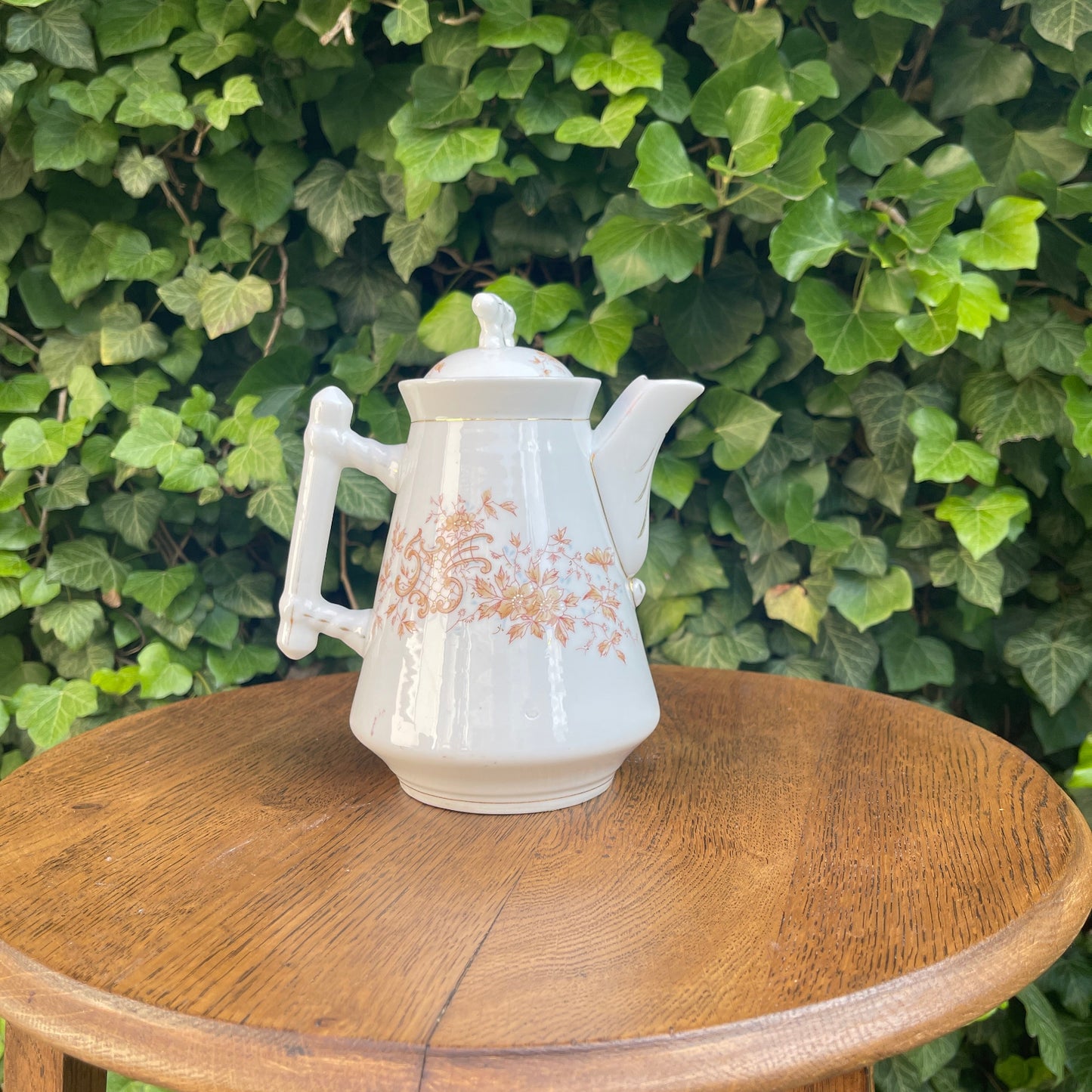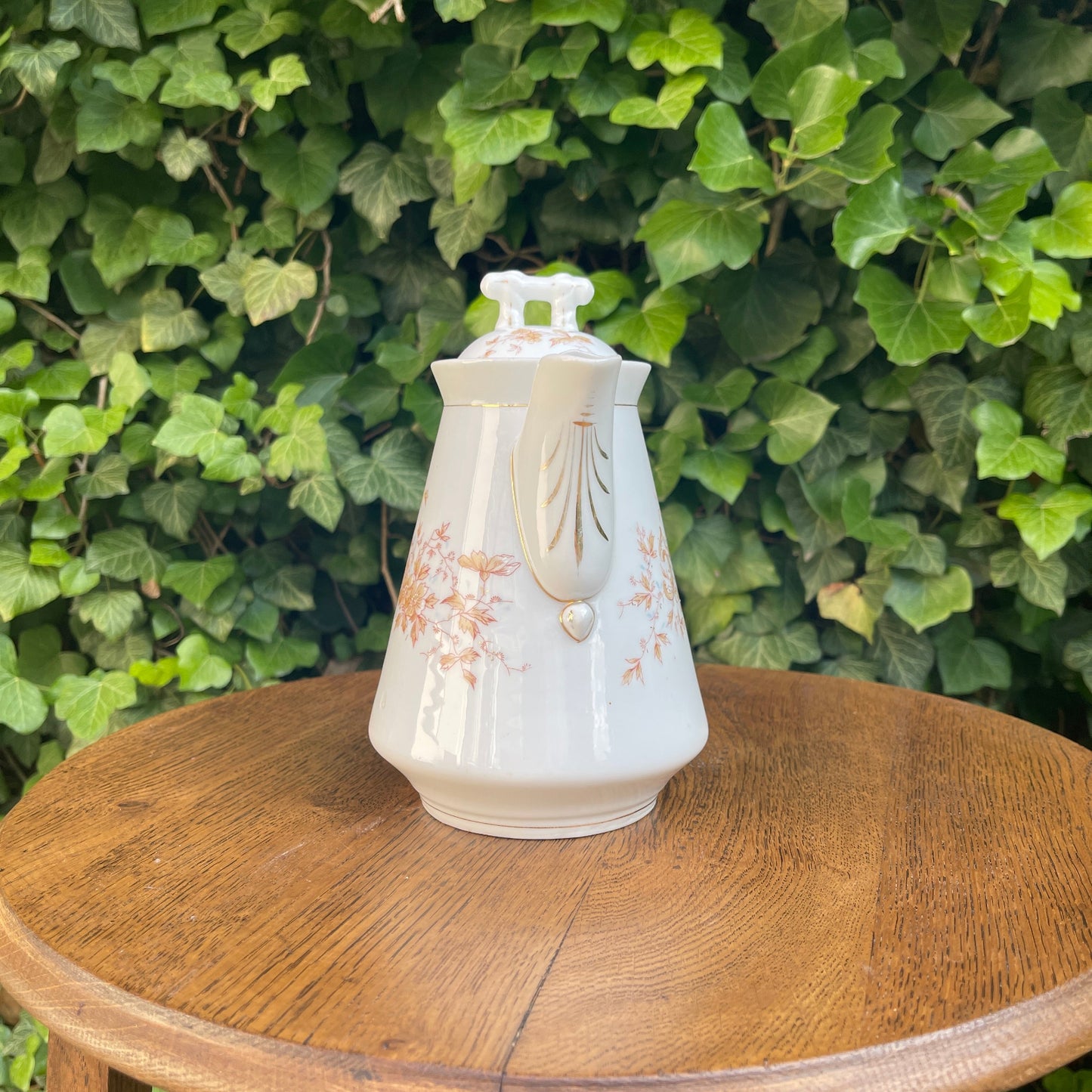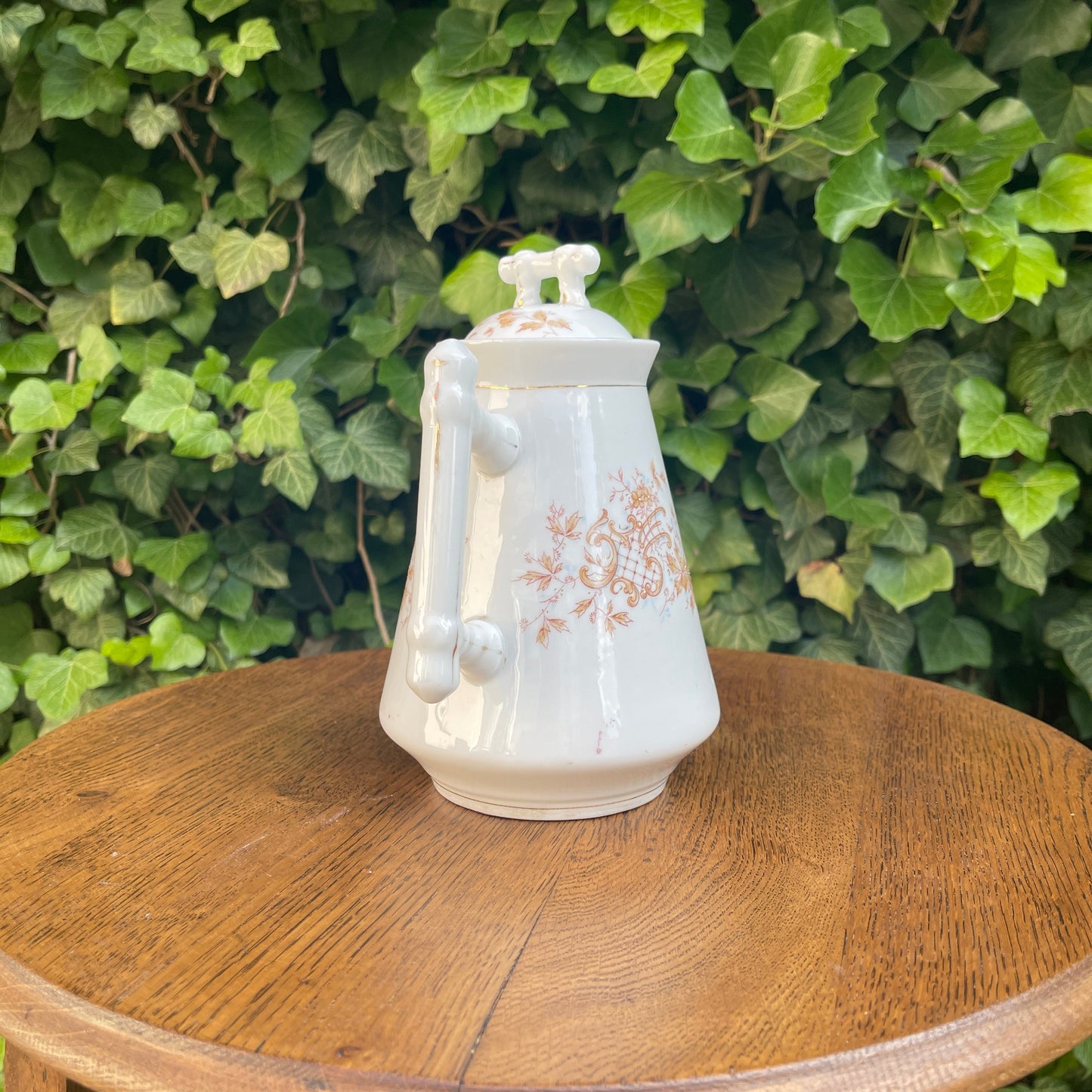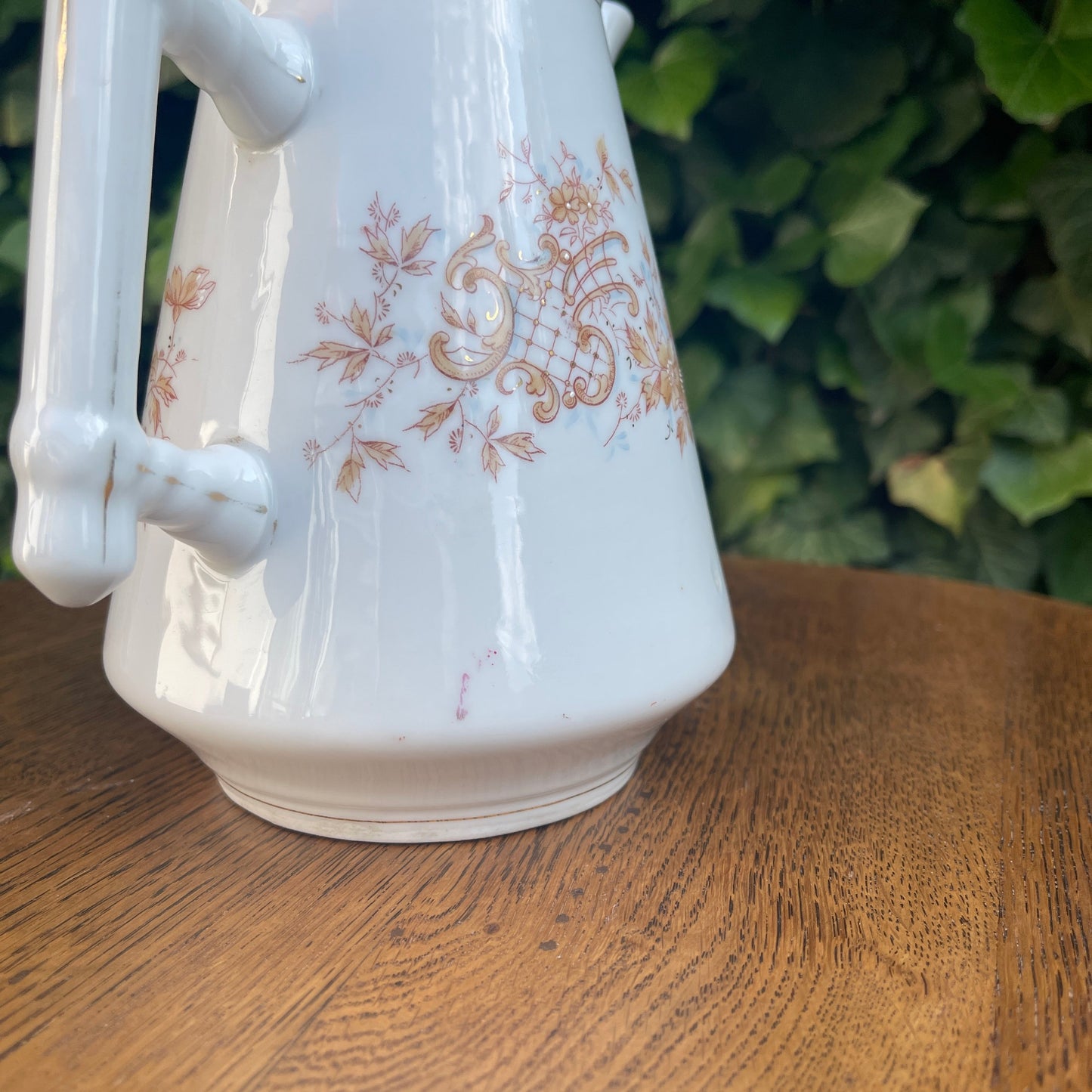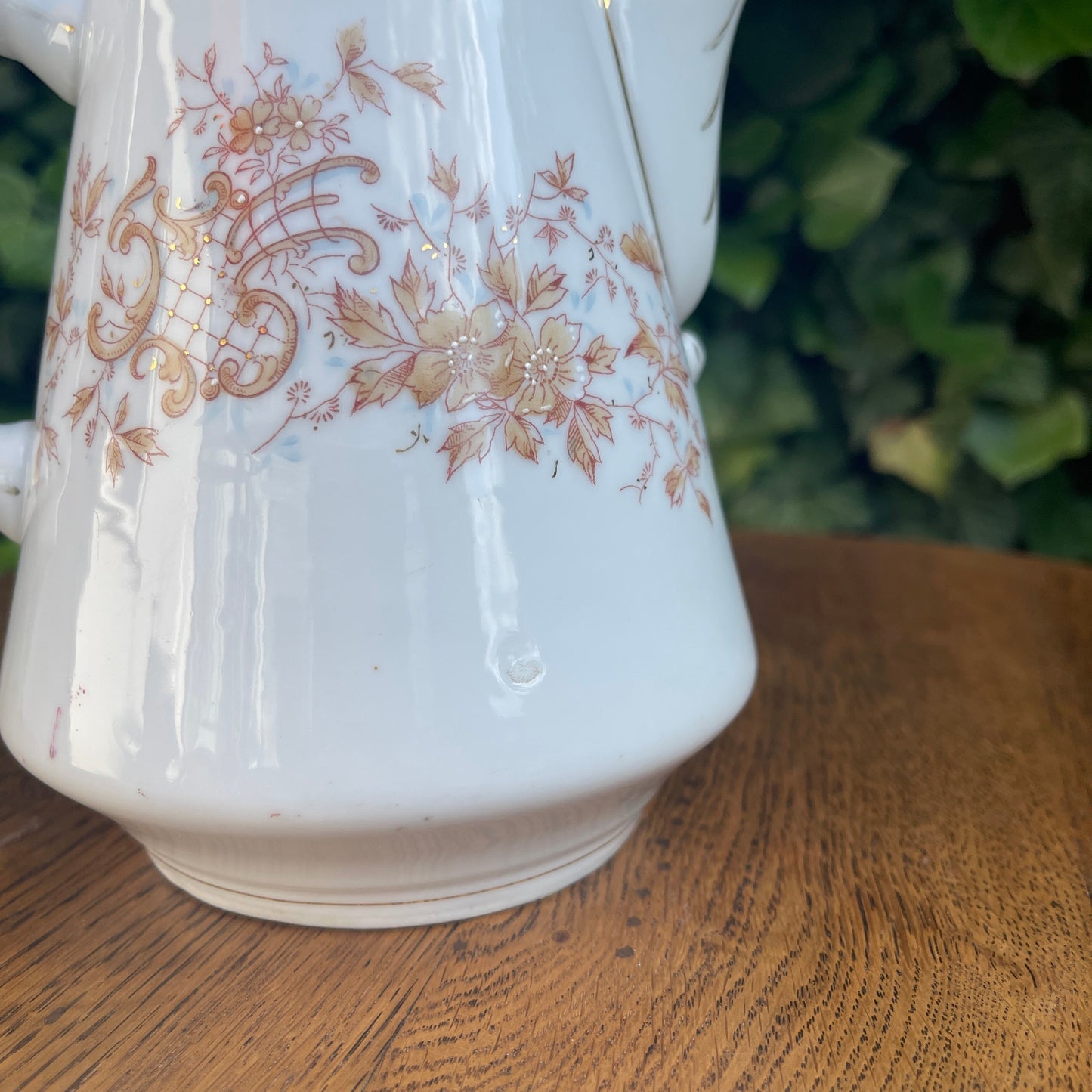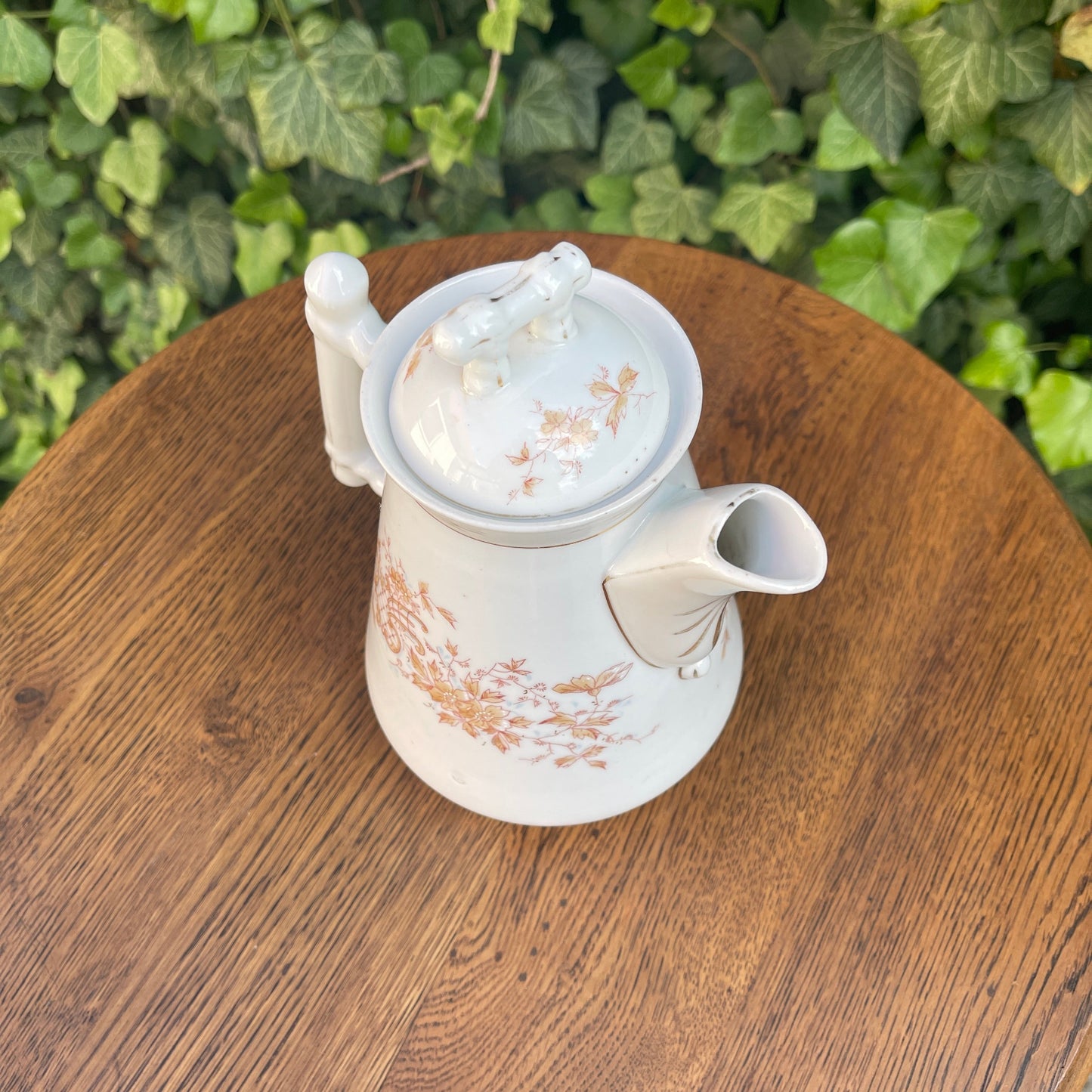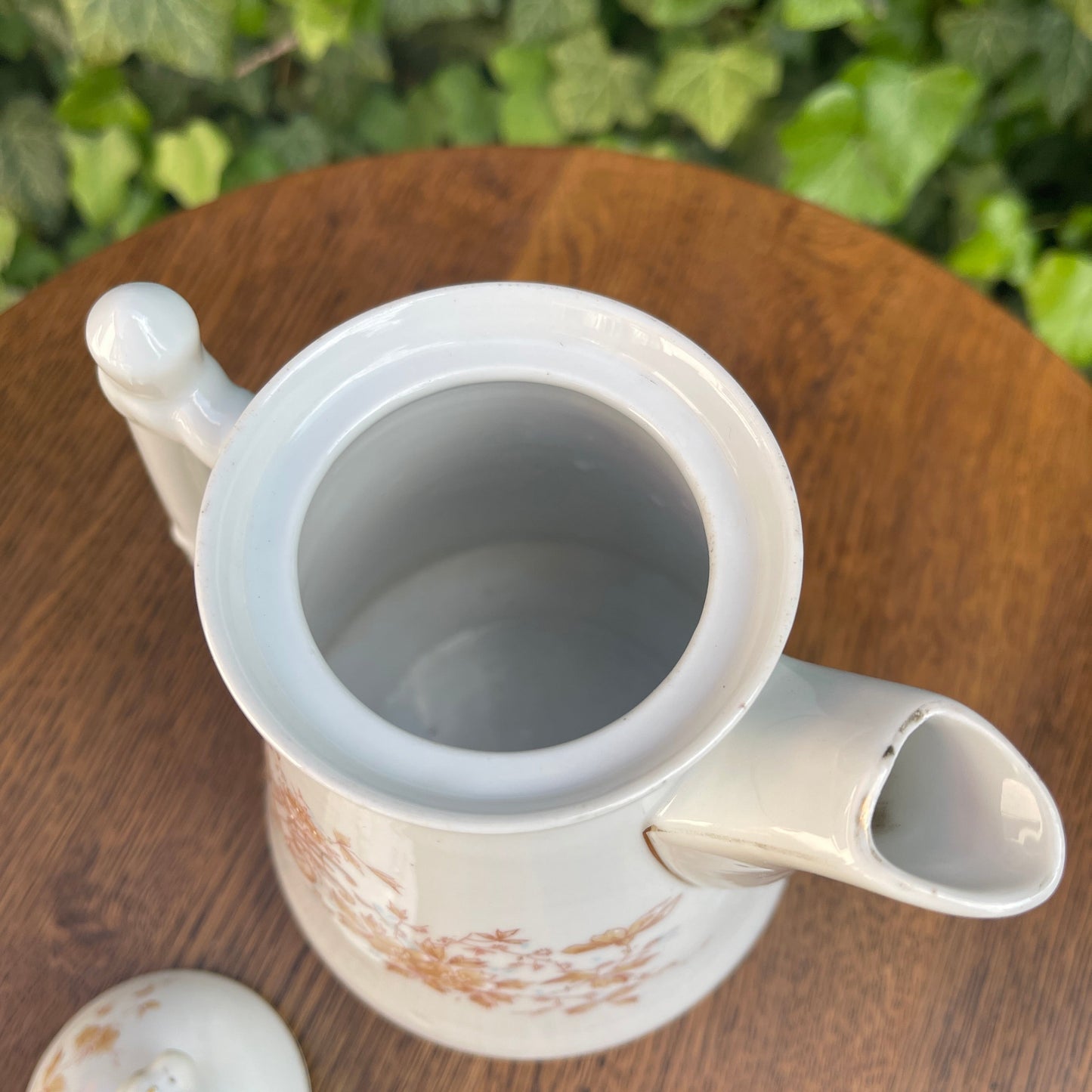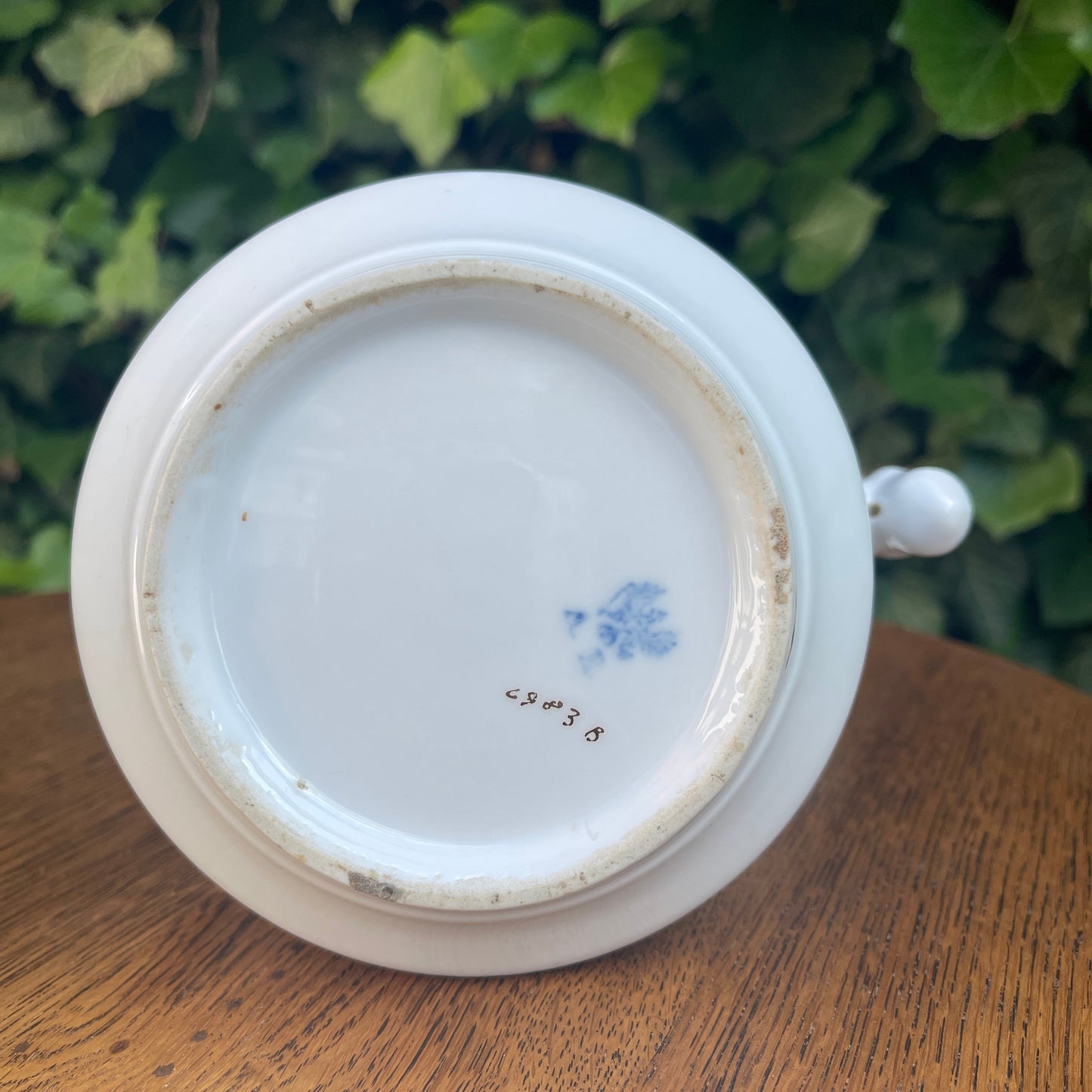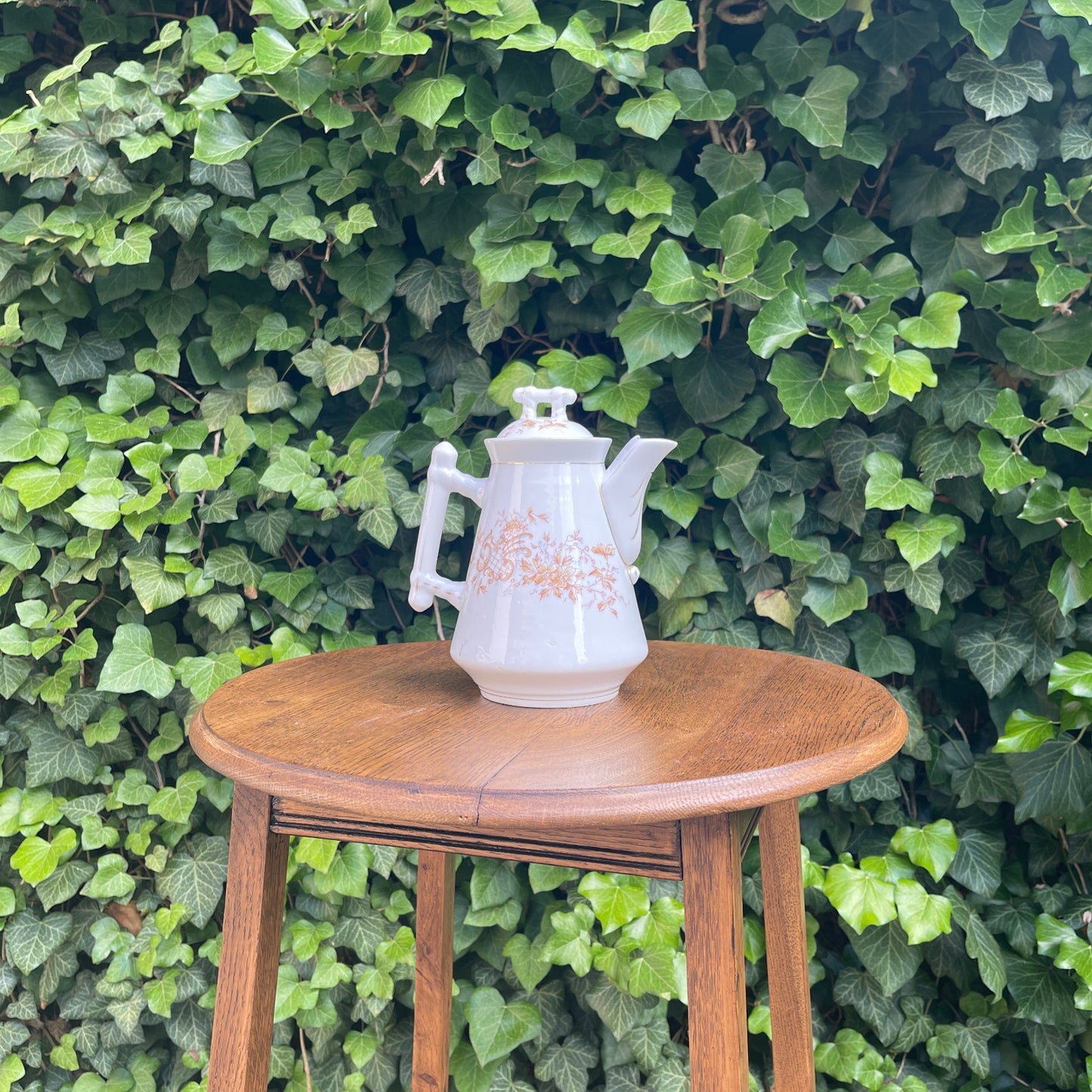Ceramic Lidded Pitcher – Golden-Botanical Decoration
Ceramic Lidded Pitcher – Golden-Botanical Decoration
Couldn't load pickup availability
This elegant ceramic pitcher with lid, commonly referred to as a “patyczak”, takes its nickname from the distinctive handle shape, which resembles a slender stick or rod (“patyk” in Polish). The pitcher features a rounded, full-bodied form, richly decorated with a dominant gilded botanical motif, set against a soft sky-blue background that adds a touch of delicacy to the overall design. The lid is topped with a handle that mirrors the side handle of the pitcher, creating a sense of visual symmetry and stylistic unity. This attention to form and balance reflects the fine craftsmanship associated with Silesian porcelain from the late 19th century. A blue underglaze stamp featuring an eagle and the initials “A.R.” appears on the underside, identifying this piece as a product of the August Rappsilber porcelain factory in Königszelt (now Jaworzyna Śląska, Poland). This particular mark was used between 1880 and 1886, providing a clear historical context for the piece.
The Königszelt porcelain factory, founded in 1860 in what is now Jaworzyna Śląska, Poland, was one of the leading porcelain manufacturers in Silesia. Known for its refined decorative and tableware pieces, the factory produced high-quality porcelain embellished with gilded details, botanical motifs, and elegant forms. During its operation, the factory used a variety of identifying marks, including underglaze blue stamps with eagles and initials like “A.R.”, which refer to August Rappsilber, who owned the factory between 1880 and 1886. This period is especially valued by collectors for its craftsmanship and distinctive designs. After Rappsilber’s ownership, the factory continued production under new management and remained active until World War II, when operations were disrupted. Following the war and the redrawing of Poland’s borders, the factory was nationalized under the Polish state and operated for several decades as part of the country’s ceramic industry before eventually ceasing production in the late 20th century. Today, Königszelt porcelain is appreciated for its artistry, historical value, and place in the Central European ceramic tradition.
Product details
-
Overall dimensions: 7 1/2" (height) × 4 1/2" (width)
-
Technique: Molded porcelain with gilded and painted botanical decoration
-
Origin: Königszelt, Silesia (now Jaworzyna Śląska, Poland)
-
Date: 1880–1886
-
Signature: Blue underglaze eagle stamp with initials “A.R.”
Share
